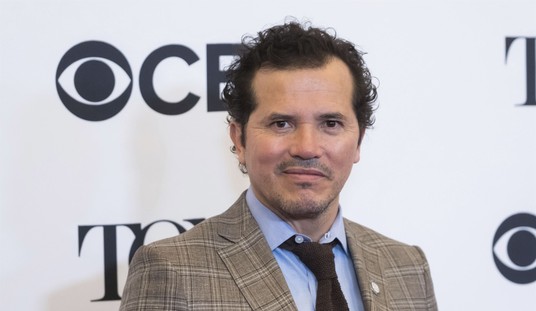Judge Hudson of the United States District Court for the Eastern District of Virginia denied a motion by the federal government to dismiss a suit filed by Virginia challenging the mandatory health insurance provisions of the ObamaCare law. Similar motions to dismiss are pending in other district courts.
By virtue of its procedural posture, denial of the motion to dismiss Virginia’s action does not decide the case. However, it does provide tentative guidance as to how at least one federal judge may eventually rule on whether a federal requirement that individuals purchase health insurance is within the powers of the federal government.
In addition to the Commerce Clause, the federal government invoked its taxing powers under the Constitution — as it recently threatened to do despite President Obama’s earlier assertions that no tax was involved — arguing that its taxing powers are even more expansive than its powers under the Commerce Clause. It also claimed that its powers to promote the general welfare justify the mandatory health insurance requirement.
A number of arcane but important issues — like standing to sue, as the mandatory insurance requirement is not scheduled to go into effect until 2014, and others — are discussed in the decision, and were resolved favorably to Virginia. But according to Judge Hudson, the “centerpiece of the case” is whether the Congress has the authority “to regulate economic inactivity.” The mandatory health insurance requirements of the law present, for the very first time, a question of whether the Commerce Clause is sufficiently broad to permit the requirement to be imposed. Judge Hudson noted:
The congressional enactment under review — the Minimum Essential Coverage Provision — literally forges new ground and extends Commerce Clause powers beyond its current high water mark. Counsel for both sides have thoroughly mined relevant case law and offered well reasoned analyses. The result, however, has been insightful and illuminating but short of definitive. While this Court’s decision may set the initial judicial course of this case, it will certainly not be the final word.
Under the judge’s analysis of Commerce Clause cases, no clear precedent exists to support the federal government’s position. Even though the Commerce Clause has become a bloated catchall for everything the federal government wants to do having any tangential impact on interstate and intrastate commerce, it seems that the federal government may finally have overstepped its bounds.
Under the Supreme Court’s 2005 decision in Gonzales v Raich, 545 U.S. 1, involving the cultivation of marijuana for personal use only and not for sale:
[Our] case law firmly establishes Congress’ power to regulate purely local activities that are part of an economic “class of activities” that have a substantial effect on interstate commerce. … When Congress decides that the “total incidence” of a practice poses a threat to a national market, it may regulate the entire class. … In this vein, we have reiterated that when “a general regulatory statute bears a substantial relation to commerce, the de minimis character of individual instances arising under that statute is of no consequence.
The federal government argued that Raich and its predecessor Wickard v. Filburn, 317 U.S. 111 (1942), involving the cultivation of wheat for a farmer’s own use and not for sale in commerce applied, since “without full market participation, the financial foundation supporting the health care system will fail, in effect causing the health care regime to implode.” The federal government relied principally on Wickard holding that (as noted by Judge Hudson):
[The] Commerce Clause provided federal power to regulate the personal cultivation and consumption of wheat on a private farm … [because] the “consumption of such non-commercially produced wheat reduced the amount of commercially produced wheat purchased and consumed nationally, thereby affecting interstate commerce.”
Virginia argued to the contrary:
[The cited cases] necessarily involved a voluntary decision to perform an act, such as growing wheat or cultivating marijuana. The Commonwealth argues that this critical element is absent in the regulatory mechanism established in the Minimum Essential Coverage Provision. This provision, the Commonwealth maintains, requires a person to perform an involuntary act and as a result, submit to Commerce Clause regulation. … [The] decision not to purchase a product such as health insurance, is not an economic activity. It is a virtual state of repose — or idleness — the converse of activity. (Emphasis added)
Judge Hudson agreed with the government’s position, which Virginia conceded, that the “power of the Congress to tax exceeds it ability to regulate under the Commerce Clause.” However, he also noted — and the government “appeared to concede” — that it is limited, and that if the mandatory health insurance law “is not within the letter and spirit of the Constitution, then the [tax] penalty necessarily fails.” Similarly, notwithstanding the expansive authority of the federal government argued to exist under the General Welfare clause of the Constitution, Judge Hudson properly held that the latter clause does not allow an otherwise unconstitutional federal intervention.
The case is far from over. However, as Judge Hudson observed:
While this case raises a host of complex constitutional issues, all seem to distill to the single question of whether or not Congress has the power to regulate — and tax — a citizen’s decision not to participate in interstate commerce. Neither the U.S. Supreme Court nor any circuit court of appeals has squarely addressed this issue. No reported case from any federal appellate court has extended the Commerce Clause or Tax Clause to include the regulation of a person’s decision not to purchase a product, notwithstanding its effect on interstate commerce. Given the presence of some authority arguably supporting the theory underlying each side’s position, this Court cannot conclude at that stage that the Complaint fails to state a cause of action.
In the procedural posture of the case, Judge Hudson could not have concluded that Virginia will ultimately win on the merits or that ObamaCare is unconstitutional; he went about as far as he could. The district court will not have the final say, and the root issues will eventually wind up before the Supreme Court unless ObamaCare is repealed or modified later by Congress.
Still, the decision provides reason to hope that sanity may prevail.
Within a few hours of the denial of the administration’s motion to dismiss, a White House spokesperson proclaimed that the district court had got it all wrong in refusing to dismiss Virginia’s complaint. She stated:
“The federal government believes this procedural ruling is in error and conflicts with long-standing and well-established legal precedents,” Cutter wrote, “the types of precedents that, in the words of Chief Justice Roberts, are designed to preserve the ‘judiciary’s proper role in our system of government’ and to ensure that our courts do not become forums for political debates.”
Now that the lawsuit must go forward, however, Cutter wrote that “the government fully expects to prevail on the merits” of its case.”
Meanwhile, Representative Pete Stark, D-California, contended:
“I think that there are very few constitutional limits that would prevent the federal government from rules that could affect your private life.” He was roundly booed, but then given another opportunity to respond. He observed that “the federal government, yes, can do most anything in this country.”
At least neither he nor the White House spokesperson hedged in expressing their views. Consistency of position, I guess, is a small step in the right direction.
The administration position should also clarify, for some who previously didn’t understand, that only if the courts apply the Constitution and the mountain of precedent based upon it when dealing with governmental bullying can the republic persist.









Join the conversation as a VIP Member